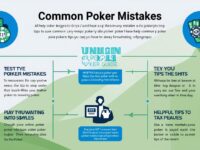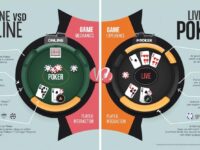Poker is not merely a game of chance; it’s a strategic battleground where skill, patience, and analysis prevail. While many players rely on luck, seasoned poker enthusiasts understand the importance of strategy and continuous improvement. A critical component of enhancing one’s poker skills is tracking progress diligently. By doing so, players can identify patterns, adjust strategies, and ultimately increase their chances of winning consistently. This article delves into the strategic journey of mastering poker and the essential practice of tracking progress to ensure sustained success.
Mastering Poker: A Strategic Journey to Success
Mastering poker requires more than just understanding the basic rules of the game. It involves a deep dive into the nuances of strategy, psychology, and probability. Players must learn to read opponents, manage their bankroll, and make decisions based on incomplete information. Successful players continuously develop their skills by studying the game, learning from their mistakes, and staying updated with current strategies. This strategic journey is akin to a marathon, where consistent effort and dedication are key.
A significant aspect of mastering poker is the ability to remain adaptable. The game is dynamic, with each hand presenting a unique set of circumstances. Players must be able to adjust their strategies in real time, depending on factors such as their position at the table, the tendencies of their opponents, and the cards in play. This adaptability is built through experience and a commitment to learning, as players who are rigid in their approach often find themselves outmaneuvered by more flexible opponents.
Moreover, a fundamental part of the strategic journey is psychological resilience. Poker can be an emotionally taxing game, with highs and lows that can affect one’s decision-making process. Developing a strong mental game is crucial for maintaining focus and composure, even in challenging situations. This resilience is what separates great players from the rest, allowing them to make rational decisions despite the emotional pressures of the game.
Track Your Progress for Consistent Poker Wins
To consistently win at poker, tracking your progress is indispensable. This involves recording key metrics from each session, such as win/loss records, hours played, and types of games. By maintaining a detailed log, players can identify patterns and trends in their performance. This data-driven approach allows players to make informed decisions about which strategies are working and which need adjustment, leading to more consistent success at the poker table.
In addition to logging quantitative data, players should also focus on qualitative analysis. This involves reflecting on critical hands, assessing decisions made during play, and identifying emotional responses that might have influenced outcomes. By engaging in this introspective process, players can gain insights into their behavior and thought processes, helping them to make more rational decisions in future games. This reflection is an essential step in self-improvement and developing a more disciplined approach to the game.
Technology can significantly aid in tracking progress. Various poker software tools are available to help players analyze their performance, providing advanced statistics and visualizations. These tools can highlight specific areas for improvement, such as tendencies to overplay certain hands or weaknesses in bluffing strategies. By leveraging technology, players can enhance their analytical capabilities, ensuring they remain competitive in an ever-evolving game.
In the strategic journey of mastering poker, tracking progress is not just a helpful tool but a fundamental necessity. By diligently logging and analyzing their performance, players can ensure they are constantly learning and adapting. This commitment to self-improvement not only increases the likelihood of consistent wins but also enhances the overall enjoyment of the game. As poker continues to evolve, those who embrace a methodical approach to tracking their progress will find themselves better equipped to navigate the complexities of the game, ultimately leading to a more rewarding poker experience.



















0 Comments